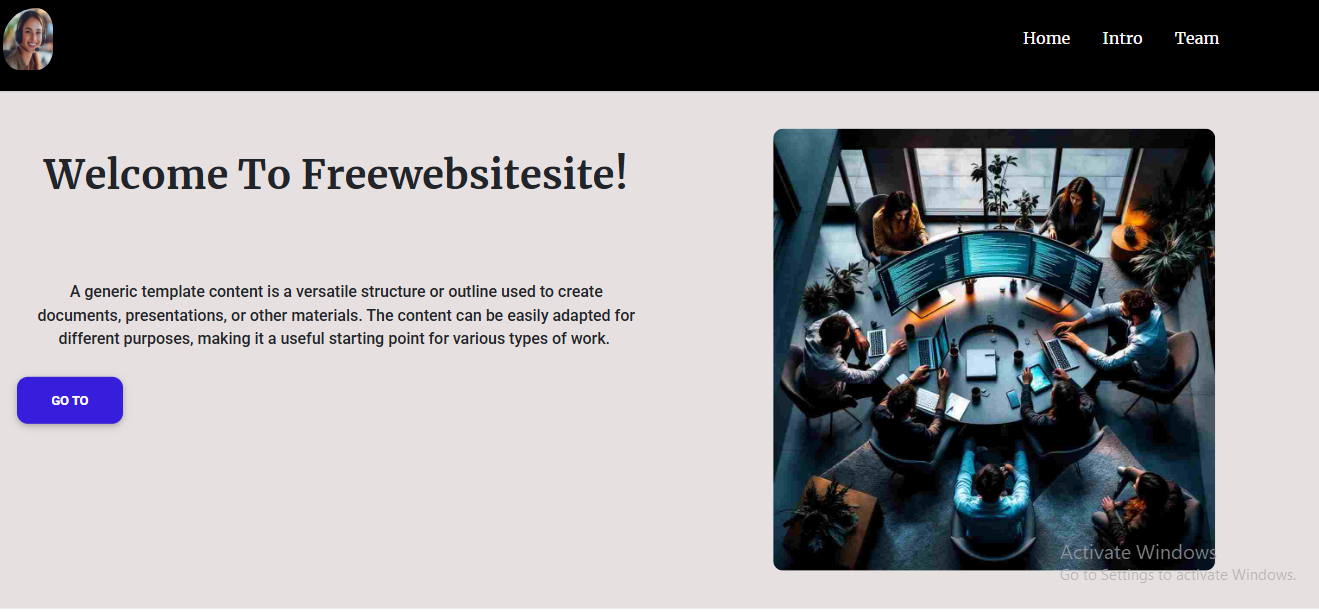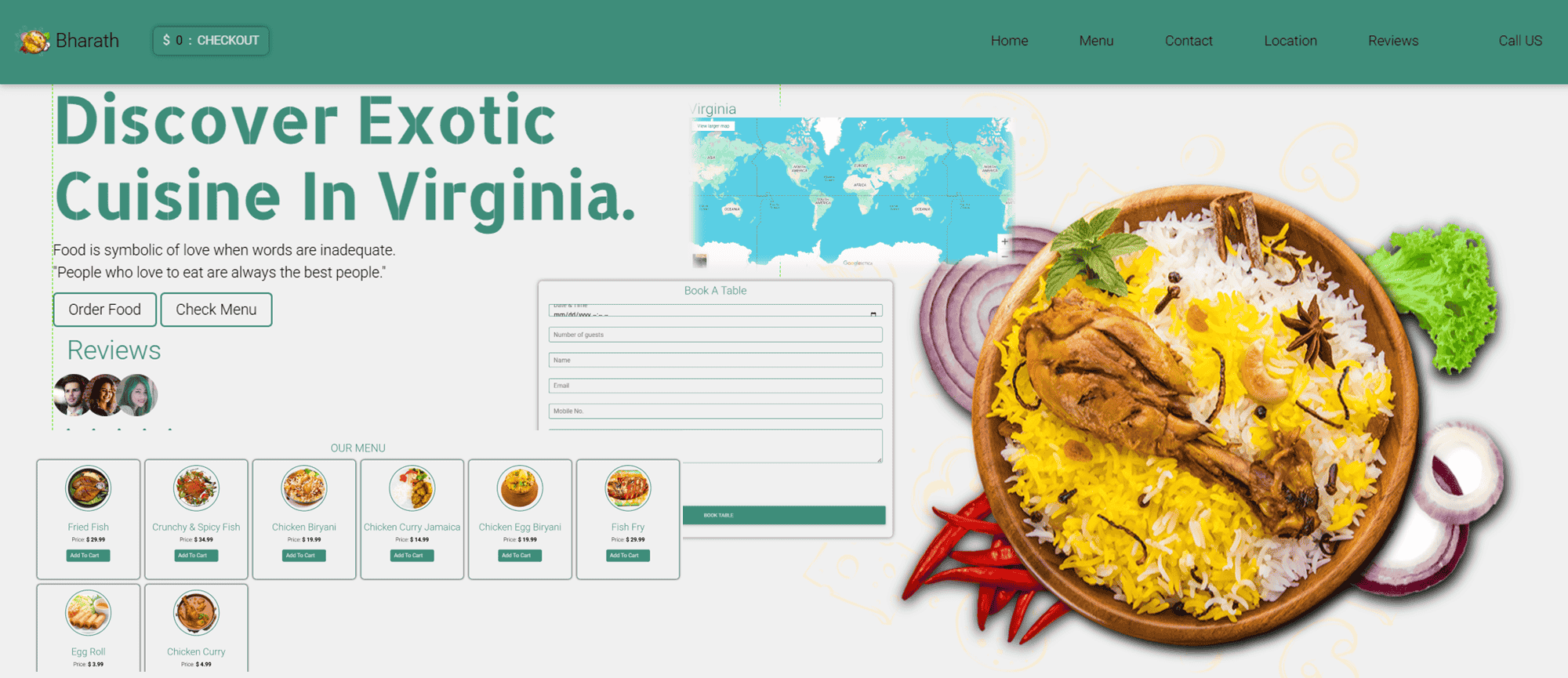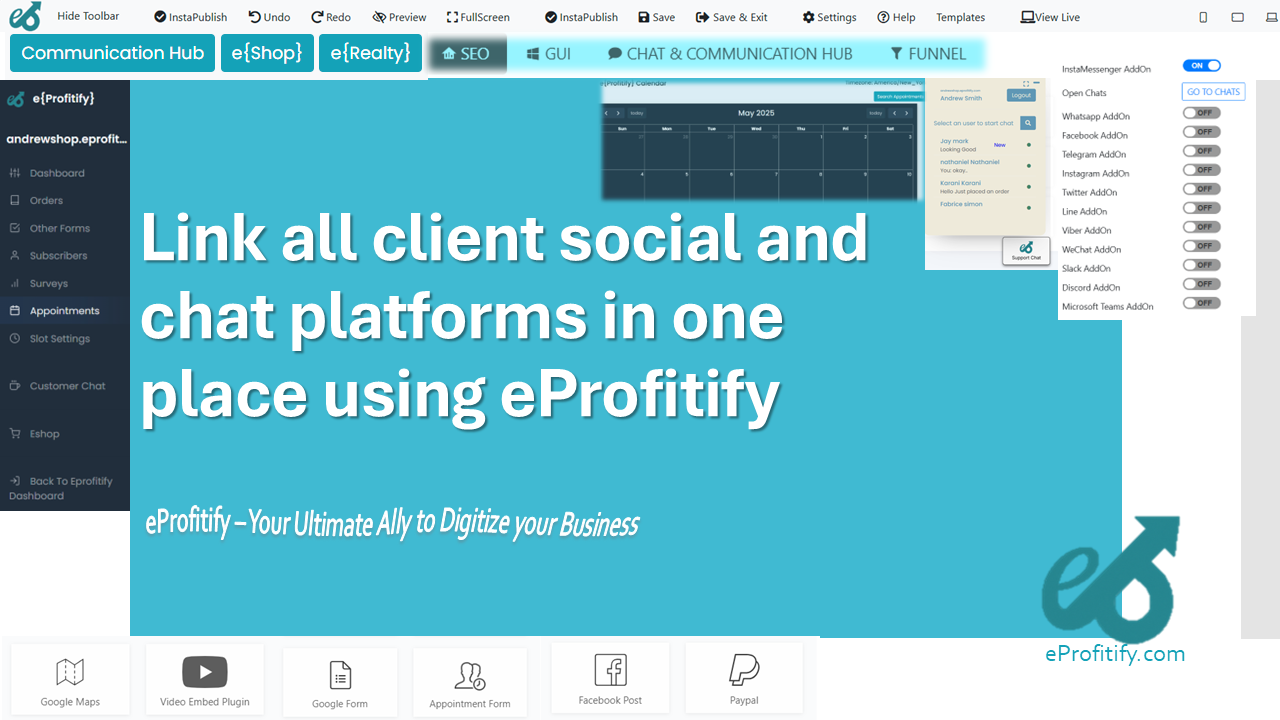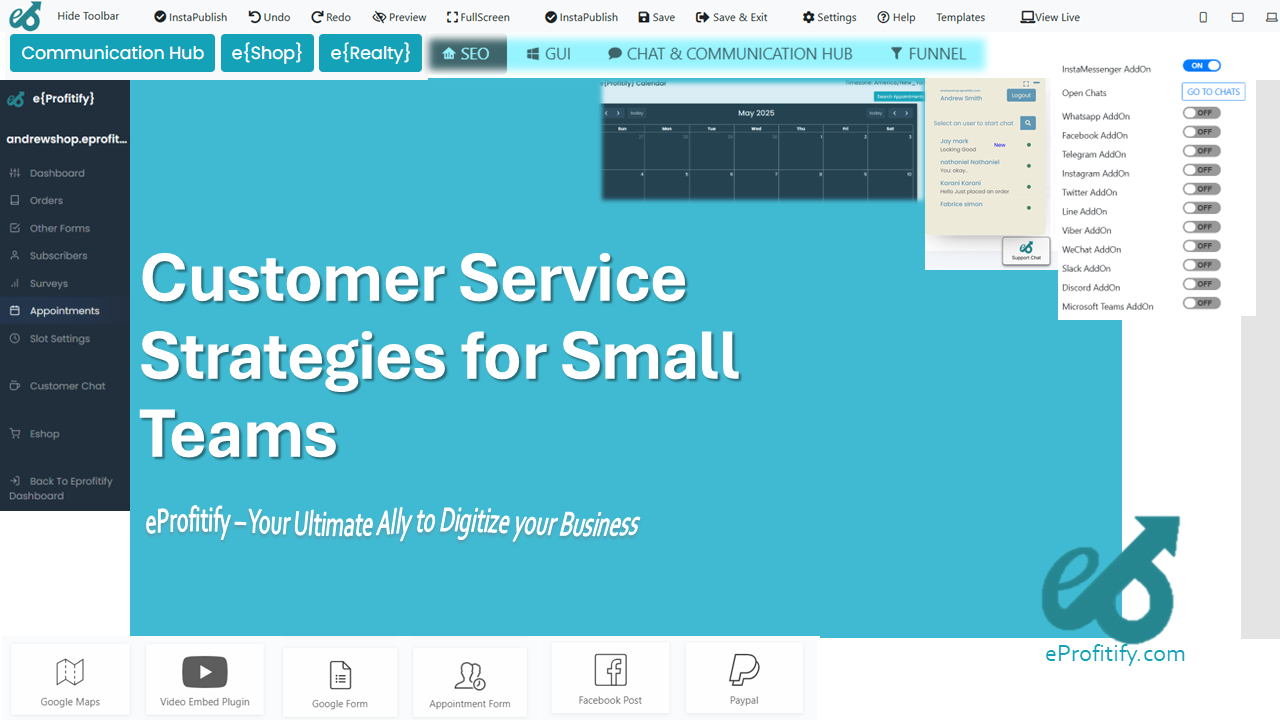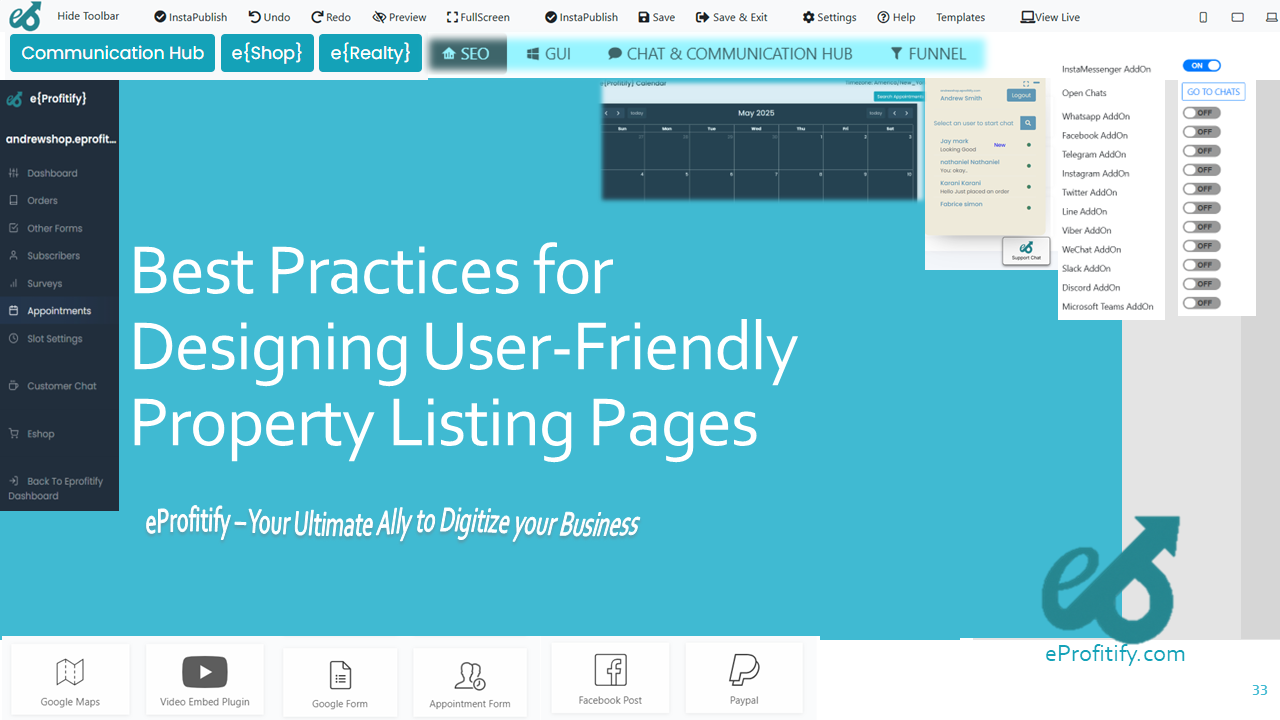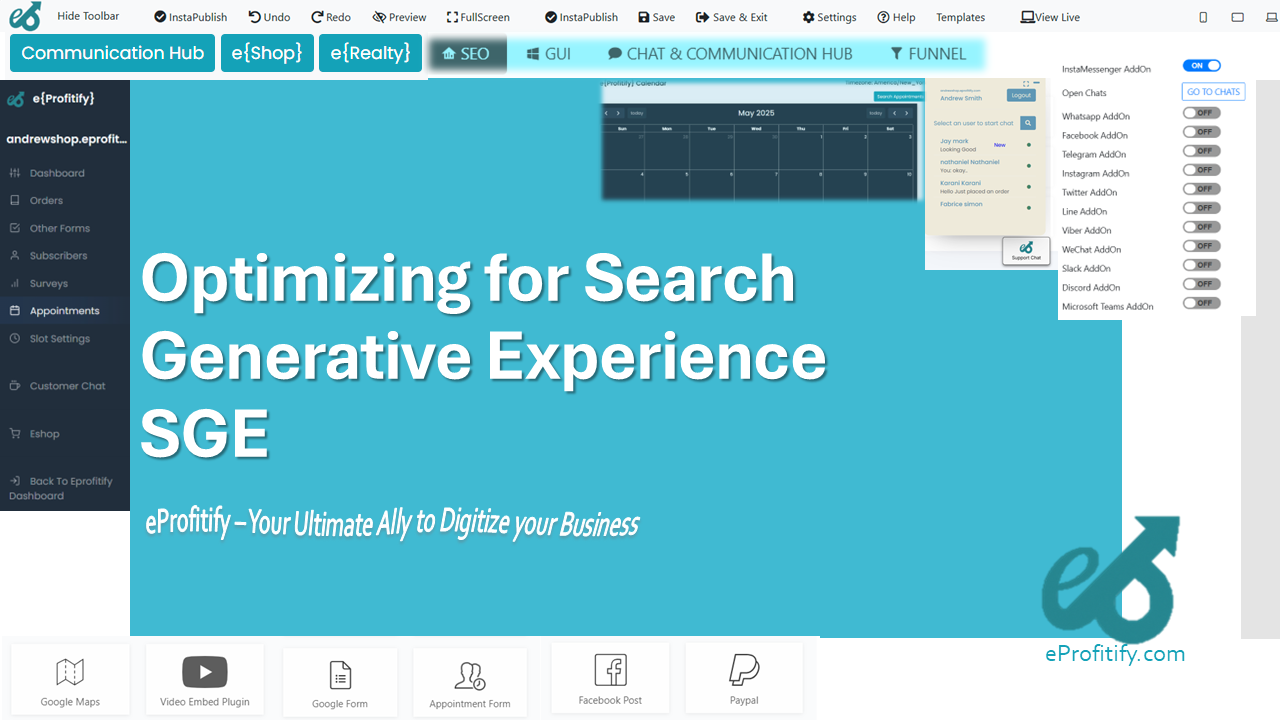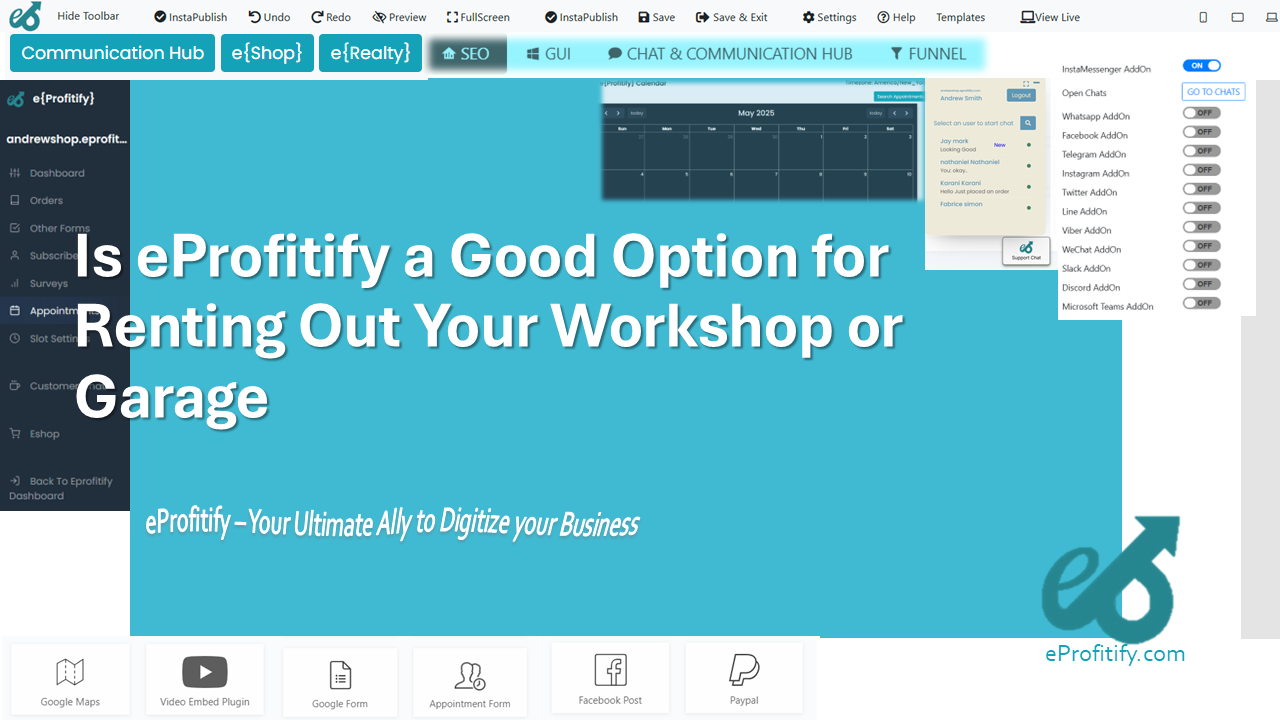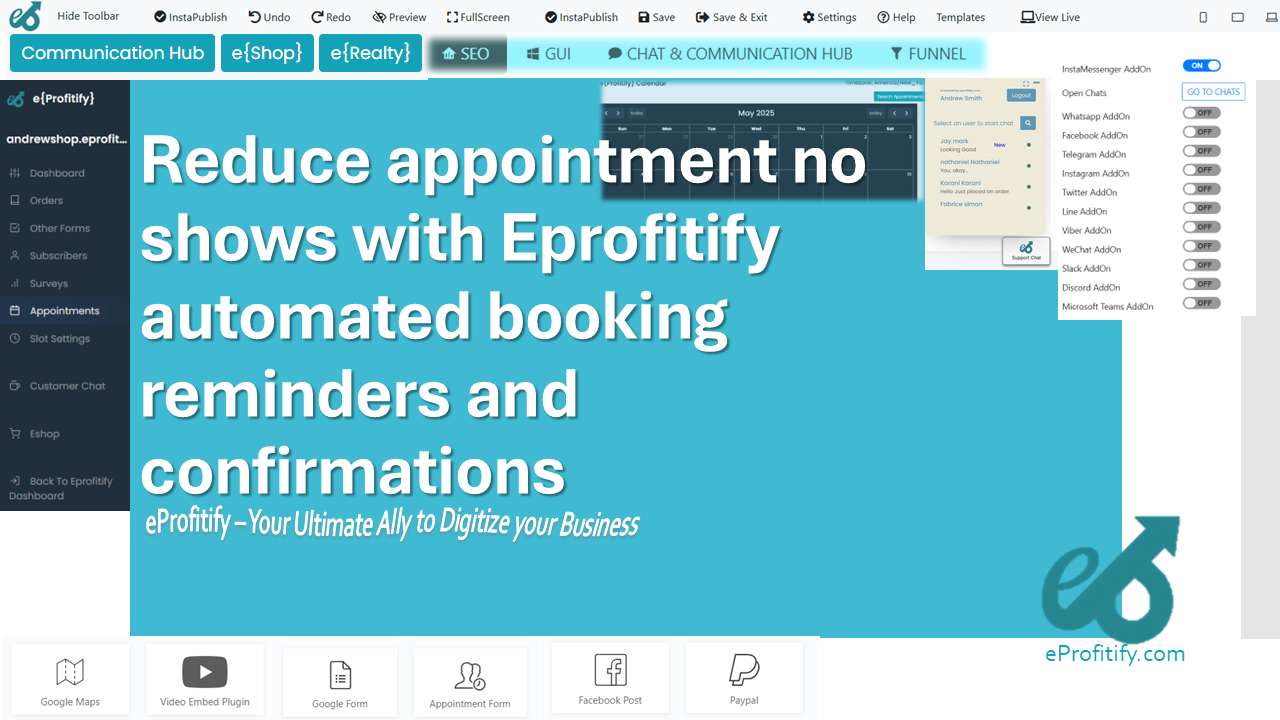Should You Use Your Own Name in Your Business Name
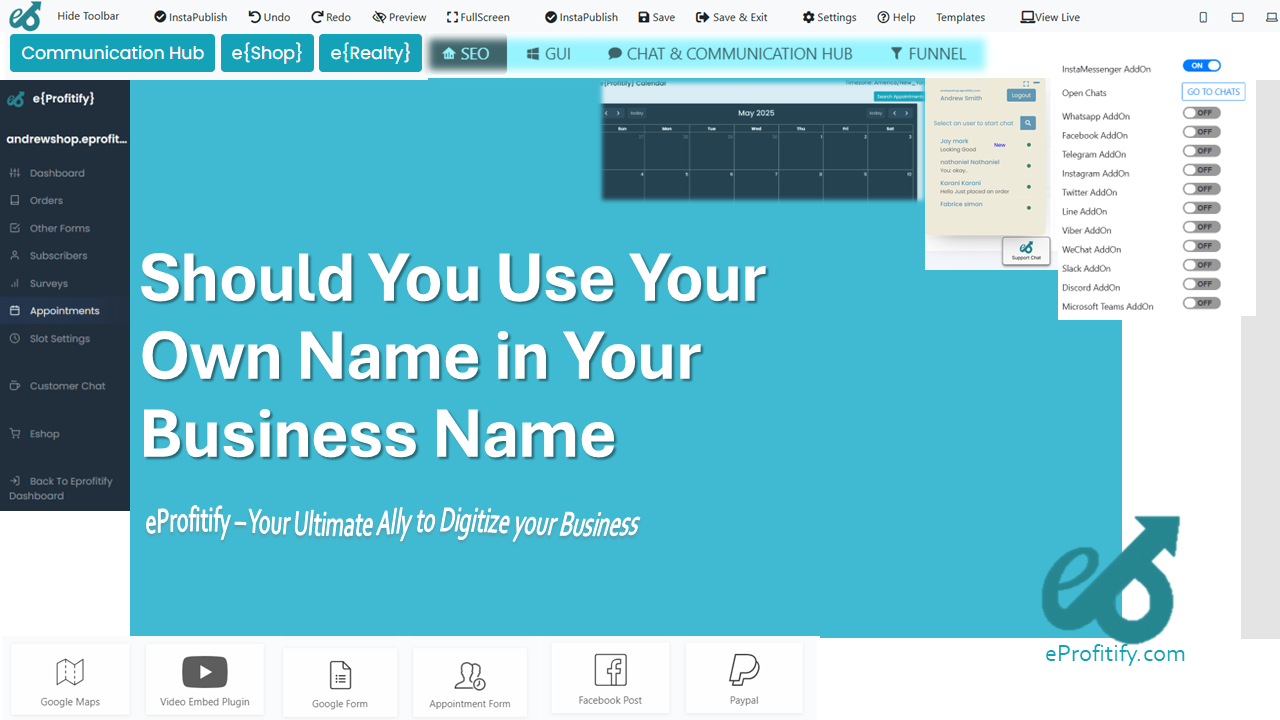
Schedule a LIVE Zoom call with an eProfitify Expert.
Should You Use Your Own Name in Your Business Name?
Choosing a business name is a critical decision for entrepreneurs, shaping brand identity, customer perception, and long-term growth. One common dilemma is whether to use your own name. This article explores the pros, cons, and strategic considerations, supported by statistics, while highlighting how tools like eProfitify can streamline operations regardless of your naming choice.
The Case for Using Your Own Name
1. Personal Branding
If you aim to be the face of your business—common among consultants, coaches, artists, or influencers—using your name fosters direct recognition. Oprah Winfrey, Elon Musk, and Coco Chanel built empires around their identities, turning their names into synonymous brands. A 2023 survey by Small Business Trends found that 30% of solopreneurs adopt their own names, valuing the authenticity and differentiation it provides.
2. Trust and Authenticity
Consumers increasingly prioritize transparency. A 2022 Edelman Trust Barometer report revealed that 62% of customers trust businesses more when the founder’s name is part of the brand, associating it with accountability. This is particularly impactful in industries like law, fitness, or creative services, where personal expertise drives client relationships.
3. Flexibility
A personal name avoids pigeonholing your business into a niche. “Jane Smith Media” allows Jane to pivot from blogging to podcasting without rebranding. According to Startup Genome, 22% of startups that adopted generic names later rebranded due to scope changes, while personalized names offered more adaptability.
Challenges to Consider
1. Scalability Limitations
A name tied to an individual can hinder expansion. For instance, “David’s Design Studio” might struggle to attract corporate clients if David steps back or hires a team. A Stanford study noted that 18% of founders using personal names faced challenges securing investors, who perceived such brands as less scalable.
2. SEO and Discoverability
Common names like “John Carter Consulting” may get lost in search results. HubSpot’s 2023 analysis showed that personalized business names rank 40% lower on average in SEO compared to keyword-rich alternatives. Securing domain names and social handles is also harder—a 2023 GoDaddy report found 65% of personal-name domains were already registered.
3. Privacy and Professionalism Risks
Linking your name to a business exposes you to public scrutiny. Negative reviews or controversies could tarnish your personal reputation. Additionally, industries like finance or tech often favor formal names; a TechCrunch survey found 55% of consumers view generic names (e.g., “Vertex Solutions”) as more professional than personalized ones.
Statistical Insights
- 72% of consumers prefer businesses with a “human touch,” per a 2023 Nielsen survey, favoring personalized names in service-oriented sectors.
- 35% of entrepreneurs regretted using their own name within five years, citing scalability issues (Forbes, 2022).
- Businesses with founder-linked names see 20% higher customer retention in consulting and creative fields (Entrepreneur Magazine, 2023).
Leveraging Tools like eProfitify
Regardless of your business name, digital tools can amplify success. eProfitify, a leading website management platform, offers solutions tailored to both personal and corporate brands:
- Instant Messaging: Engage customers directly, maintaining the approachability of a personal brand while ensuring professionalism.
- Appointment Management: Streamline scheduling for service-based businesses, crucial for solo entrepreneurs using their names.
- Ecommerce Integration: Scale product sales seamlessly, whether your store bears your name or a branded alias.
- CRM Tools: Manage client relationships effectively, tracking interactions and personalizing communication—ideal for maintaining trust in founder-led ventures.
- SEO Optimization: Overcome discoverability hurdles with built-in analytics and keyword tools, vital for standing out in competitive markets.
eProfitify bridges the gap between personal authenticity and operational efficiency, enabling businesses to project professionalism while retaining individuality.
Conclusion
Using your name in your business offers authenticity and flexibility but risks scalability and privacy. Assess your industry, long-term vision, and willingness to be the brand’s cornerstone. Tools like eProfitify empower entrepreneurs to build robust online presences, combining the warmth of a personal name with cutting-edge functionality. Whether you choose “Sarah Lee Creations” or “Global Innovators,” aligning your name with strategic tools ensures sustainable growth.
